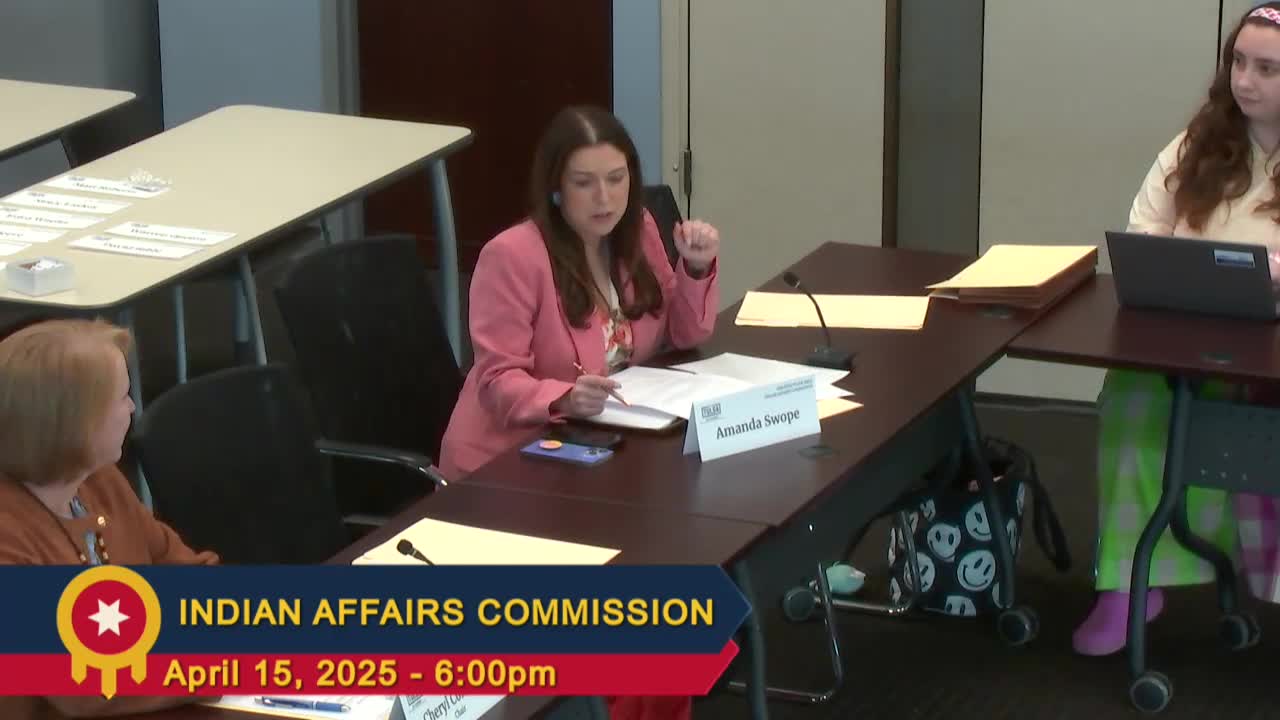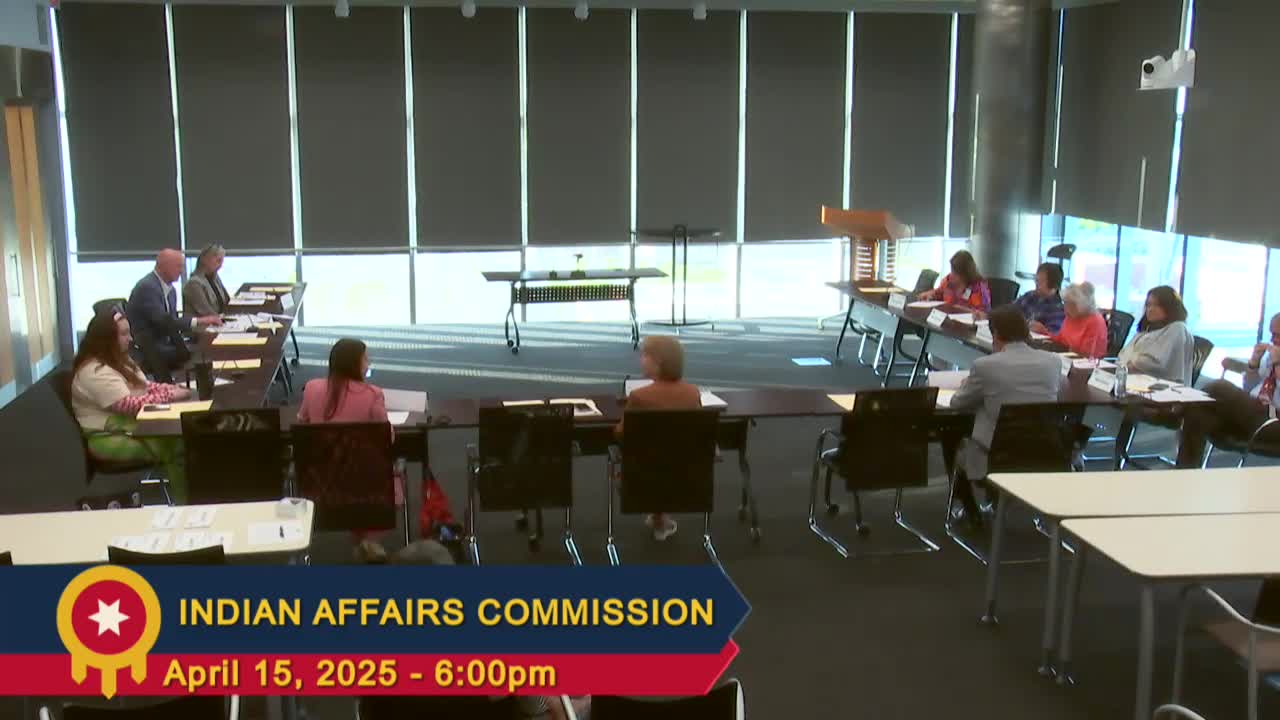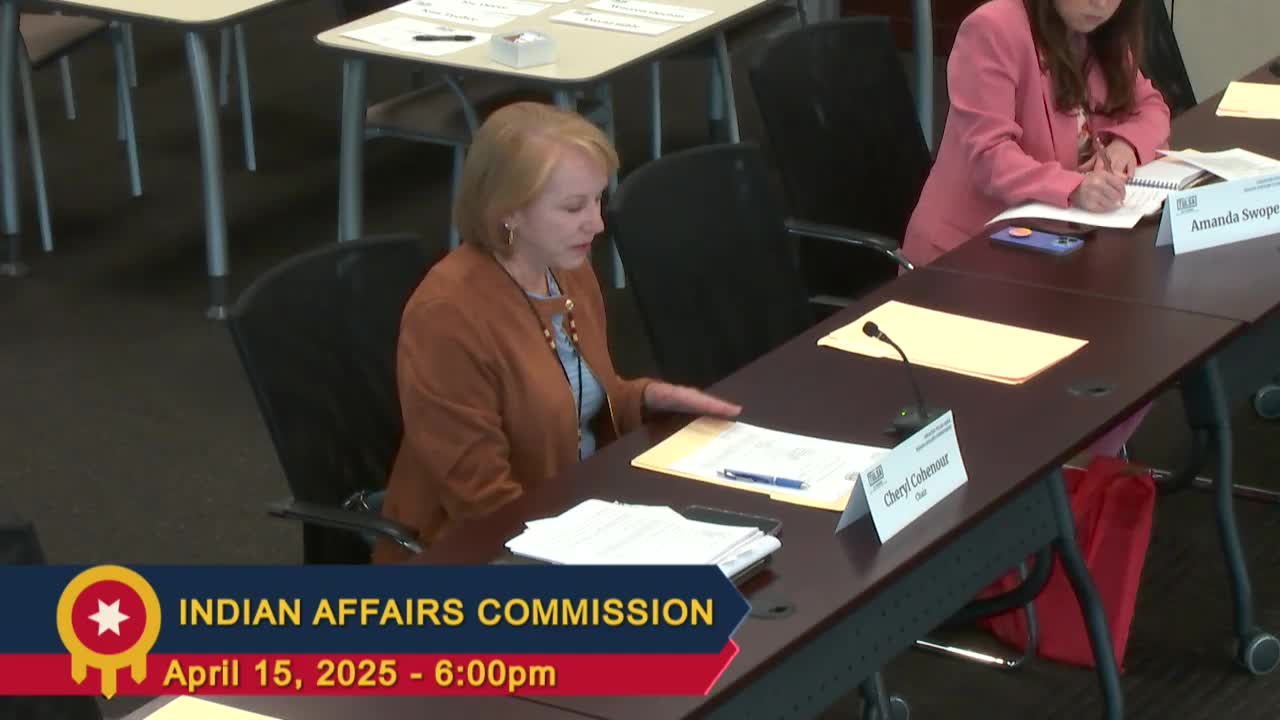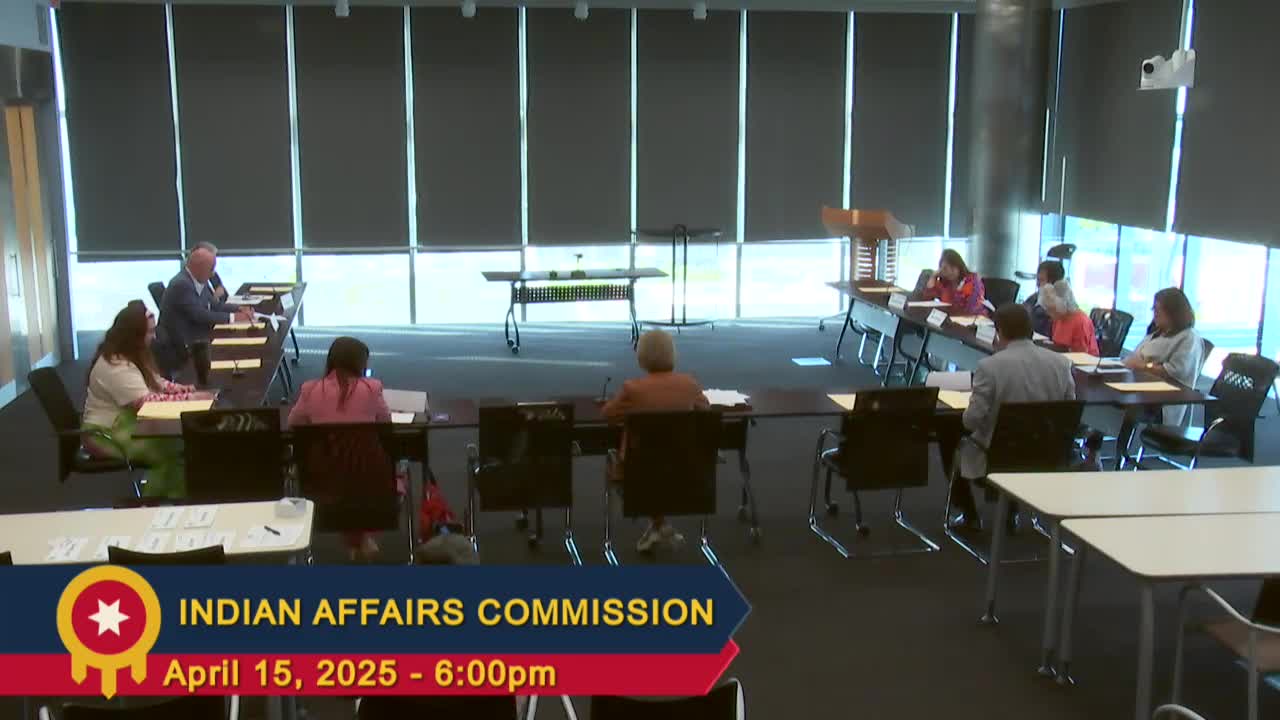Article not found
This article is no longer available. But don't worry—we've gathered other articles that discuss the same topic.

Commission discusses tribal agreements, Southern Villa TIF and public-safety MOU; settlement deadline set for May 18

Commission notes resignation, new Chamber rep and logistics changes for parking and meeting microphones

Commission outlines Native American Day plans and moves TPS senior recognition to May 1

